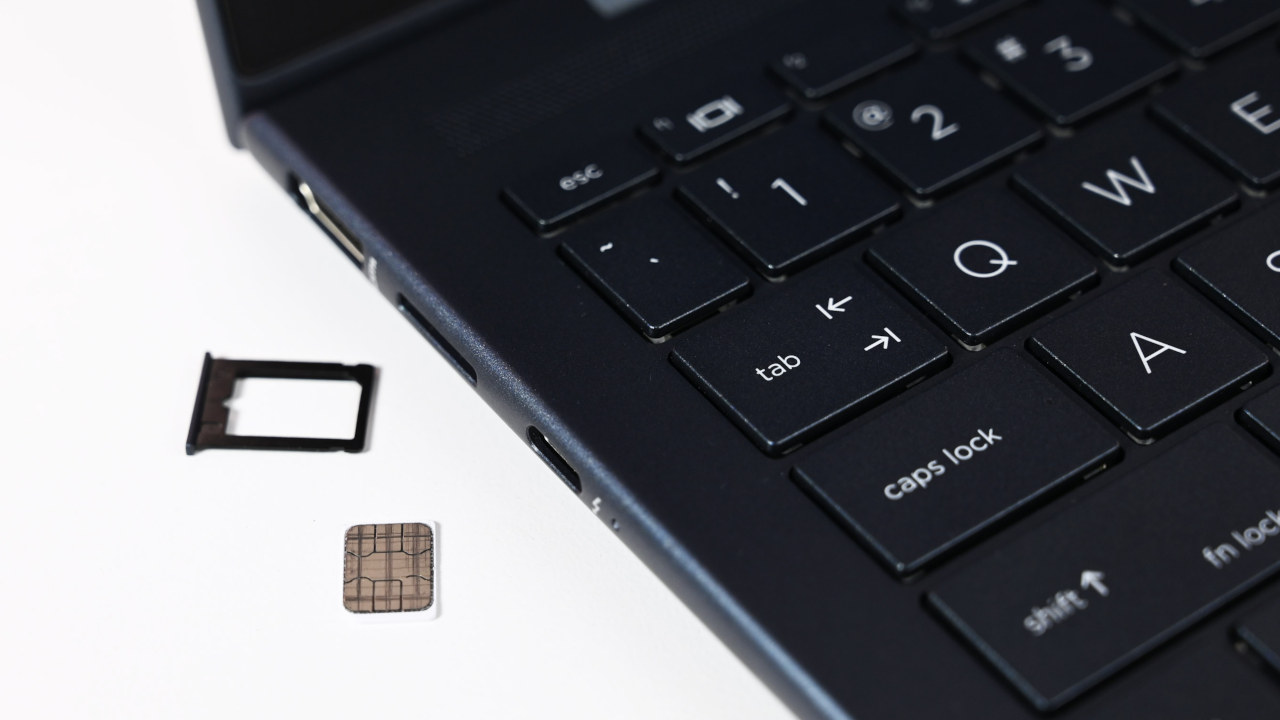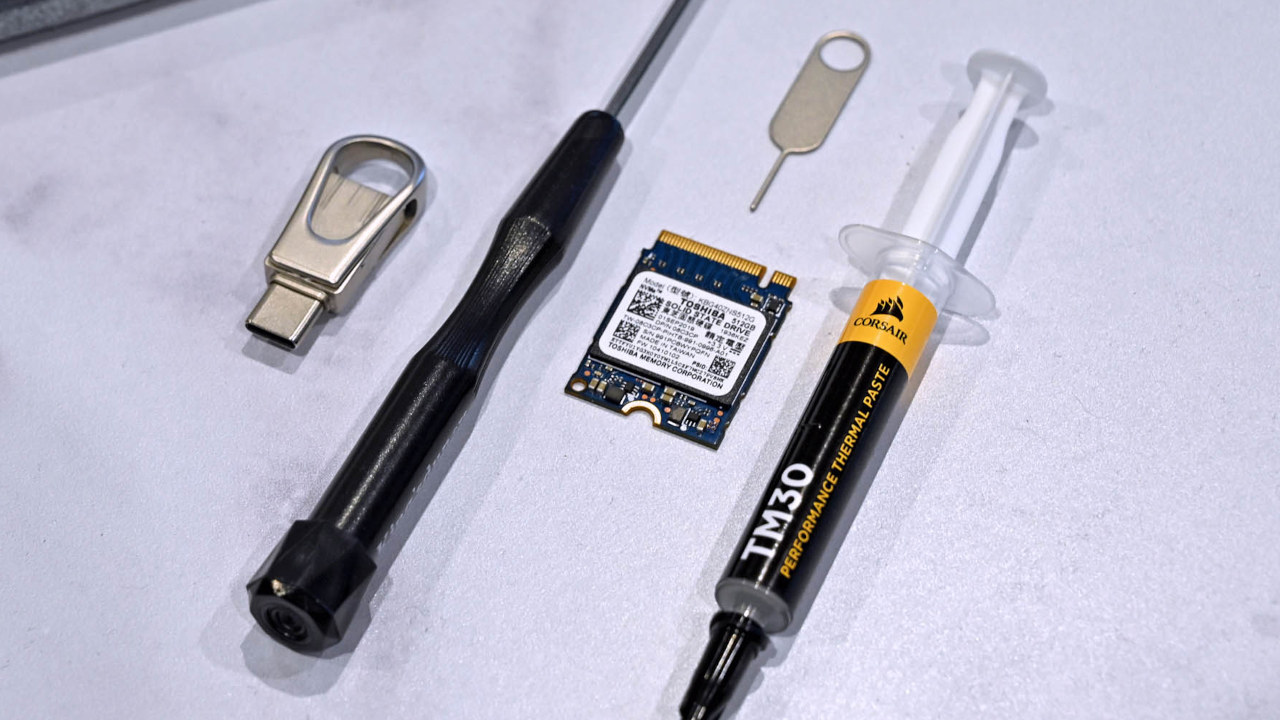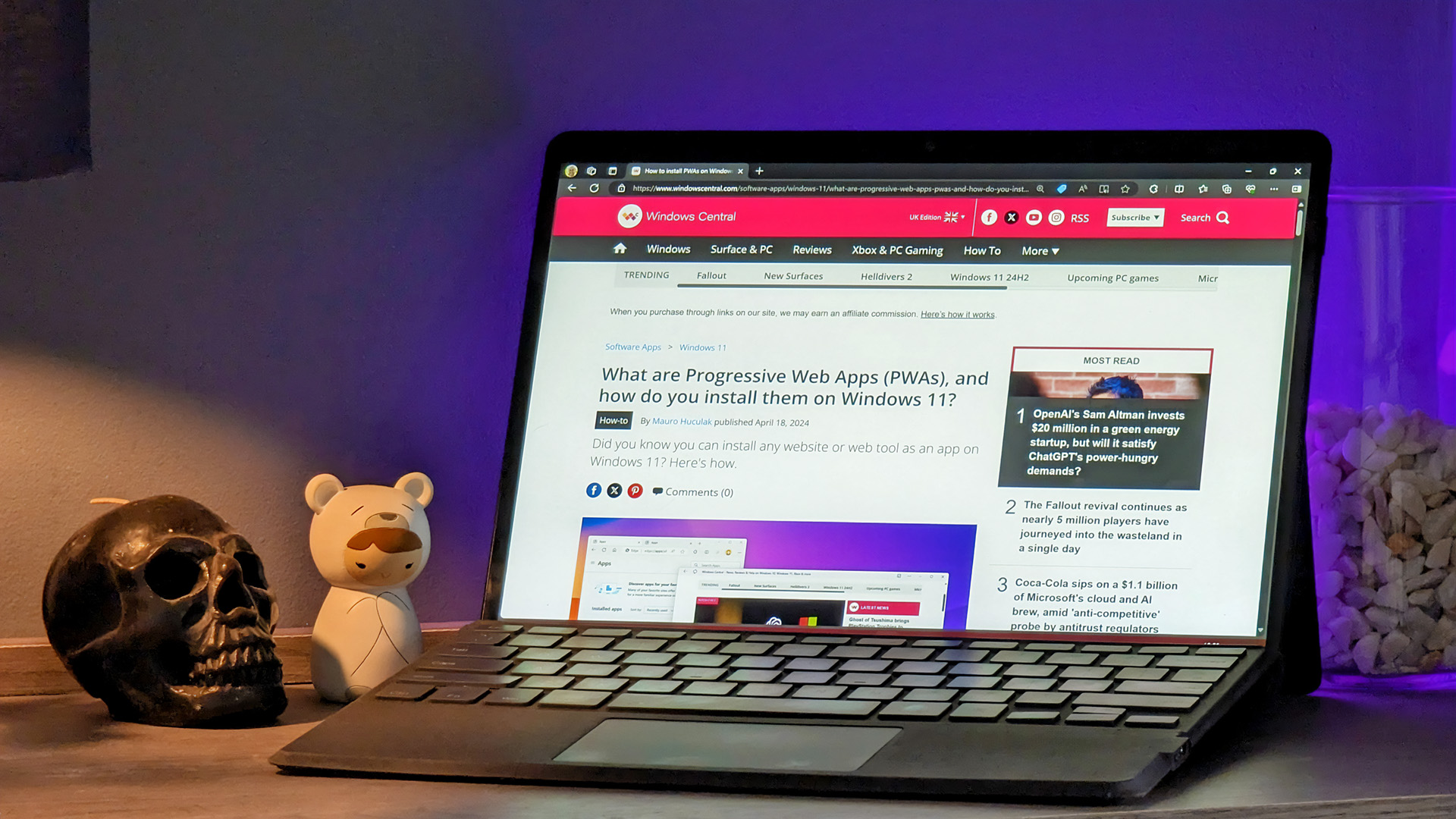
I've been using Windows for as long as I can remember, at least since my parents bought a Windows 3.1 PC when I'd fumble around in Minesweeper and Solitaire. Decades later, I still love the operating system, despite rarely using most of its features. I format my internal storage at least once every six months to enjoy that 'fresh install' feeling without a cluttered downloads folder, keeping my most precious files backed up to the cloud via OneDrive. It's not that Windows 11 is missing anything for me, but I don't invest more time into my virtual environment any more than I have to.
My mostly shallow use of modern Windows goes beyond software habits, too. Every time I've migrated to a new PC, they've always been custom-built desktops with all parts bought on an aggressive budget. Windows is a vessel that gets me to Microsoft Edge to browse the web or to Steam to play PC games. Anything that happens outside of that is just consequential, and I haven't felt like I often "experienced" modern Windows in years. That was the case until I picked up a previously loved Surface Pro X to see what Windows on Arm is all about, and now my perspective on what Windows PCs can be has changed.
What matters most to me in a new PC?

So, now I have a personal investment in portable Windows, which specs are most important to me? The first is an OLED screen, which might seem obvious to those familiar with the technology or excessive to those who aren't. It was time spent during my ASUS Zenbook Duo (2024) UX8406 laptop review that finally sold me on OLED as a necessity as the range of brightness (especially apparent at the low end during dark evenings) and ultra-deep contrast completely crushes traditional LCDs.
Next up is size. I'd often dismissed anything outside of a 15.6-inch laptop chassis as too big and clunky or too small and underpowered to get the job done. A relatively recent uptick in 14-inch ultrabooks changed my mind, with ultra-competent gaming laptops like Razer's Blade 14 Mercury Edition and Lenovo's ever-excellent Slim 7i still evolving with Snapdragon X Elite chips sealing the deal. Touchscreens have grown on me, too. Not as a replacement for trackpads but as sheer convenience once I've overcome the fear of covering a gorgeous OLED panel with fingerprints.
Finally, it's 5G. Yes, it's the ignored stepchild of modern computing. Most consumers won't care about mobile connectivity unless they're frequent travelers, and even then, they might assume it's okay to connect to whatever Wi-Fi networks you can find (it's not) or that tethering to a 5G-compatible smartphone is equally convenient (it's not.) The advantages of 5G computing, whether via eSIMs or physical SIM cards, are self-explanatory the moment you try it. If you leave the house with a laptop, the experience is far better with self-sufficient mobile data.
The cash-saving shortcuts to my next laptop

An exciting wave of new Copilot+ AI PCs powered by Qualcomm's Snapdragon X Elite processors already had me opening my wallet and frantically checking my savings to see how much cash I was willing to part with. To check all of the boxes in my list of preferences, the obvious choice for a portable Windows device no larger than 14 inches, boasting an OLED screen and 5G compatibility, would be the brand-new Microsoft Surface 11th Edition. It's not cheap, starting at $1,499.99 for an X Elite variant with an OLED panel, but I had a tricky scheme up my sleeve.
Inspired by the "Steam Deck" method (self-titled) of buying the cheapest model with the smallest amount of storage and manually upgrading the internal solid-state drive (SSD.) Microsoft charges a $200 premium to upgrade from 512GB to 1TB, but a $79.99 Corsair-branded 1TB M.2-2230 drive is fine and far cheaper. However, Microsoft stamps out my dreams by delaying options with 5G to "later in 2024." So close, you almost had my money before my conscience kicked in.
And that's it. None of the other Copilot+ AI PCs that I would otherwise consider, like a Dell XPS or Lenovo Yoga/Slim, offer 5G connectivity (yet). Intel's Lunar Lake chips are just around the corner, too, promising the same 45 TOPS NPU performance as Snapdragon X alongside an earnest effort to match or beat battery life in an expanded range of Copilot+ devices. So, as it stands, my "dream" Windows PC doesn't quite exist yet, but it's close. Extremely close.
Microsoft Surface shifted my perspective

Working as Channel Editor for Windows Central allows me more fantastic opportunities with cutting-edge technology than I could count, and it's helped me refine what matters most to me and other budget-conscious buyers (see: cheapskates). Dipping my toes into the dizzying heights of NVIDIA's GeForce RTX 4090 graphics and AMD Ryzen X3D desktop processors had the opposite effect of what I expected: I didn't crave any of this stuff. Not really. Once the novelty wears off, it feels like excessive spending. So, what do I care about in a PC if not the absolute top-end of what's available?
Previously, I'd never desired laptops outside of necessity. If I'm at home most of the time, why would I want a portable device when I could have a fully-fledged tower loaded with RGB fans and other extravagant nonsense? Indeed, the idea of a professional tech head using a laptop as their driver who only leaves the house to buy coffee or to take an expenses-paid business trip with free coffee seems farfetched and perhaps pointless. Then again, I've primarily been ignorant of the benefits of a Windows portable PC because I didn't know about them until I tried.
It started with my retrospective journey into the somewhat shaky origins of Windows on Arm, which led to untapped excitement for the future of first-party Microsoft hardware. Now, I'm learning why many people crave ultrabooks with lofty promises of all-day battery life and featherweight construction. Lazing on the sofa with an egregiously long YouTube documentary explaining the lore of a video game nobody cares about and still being able to switch to a comprehensive suite of Windows apps with more than enough power to stay away from my desk for the rest of the day, I get the appeal. Surface Pro is awesome. I just need 5G in the 11th Edition.







